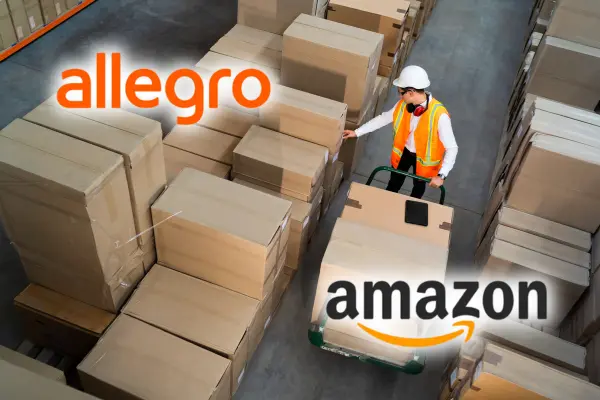E-commerce is growing at a rapid pace, but as it grows, so does customers' environmental awareness. Consumers are increasingly thinking not only about what they buy, but also how their purchases affect the environment. According to research, many customers are willing to pay more for products and services that are more environmentally friendly. This is a huge opportunity for online stores that want to build a strong brand and a loyal community around pro-environmental values. So what is green commerce and how can it look in practice in an online store?
Eco-packaging – the first step towards ecology
One of the most visible elements that customers evaluate immediately after opening a package is the way it is packed. Plastic fillers and excess foil are increasingly causing negative emotions. On the other hand, a package packed in recycled cardboard, with paper fillers or paper tape, makes the customer feel part of something more important – a shared concern for the environment.
It is also worth considering the size of the packaging. Customers notice when a small product arrives in a huge box. This is not only a waste of materials, but also higher logistics costs. A store that shows it can pack “smartly” gains extra points in the eyes of conscious consumers.
Conscious consumers – a new target group
Today's customers are increasingly choosing products that reflect their values. For many of them, protecting the environment is a priority. Conscious consumers want to know whether a product is recycled, how it is manufactured, and whether the company cares about sustainable development.
This means that the store's communication should take these needs into account. It is worth including information about the origin of materials, packaging methods, and what pro-environmental measures the company takes. Transparency is becoming one of the key factors in building loyalty. Customers who see that a store shares their values are more likely to return for further purchases and recommend it to others.
Certificates and labels – proof of reliability
Declarations are important, but it is even better when a store can back them up with specific certificates. Labels such as FSC (confirming the responsible source of wood and paper), Fair Trade, and EU Ecolabel build credibility and help customers make purchasing decisions faster.
Certificates not only enhance the prestige of the brand, but also facilitate marketing communication. Promotional materials can emphasize that products have confirmed compliance with specific standards, which works better than general slogans about “caring for the planet.”
Ecology in logistics and returns
A responsible e-store can also operate in an environmentally friendly manner in terms of logistics. Choosing courier companies that invest in carbon neutrality, reducing empty runs, or offering delivery options to parcel lockers instead of individual transport are further ways to reduce your carbon footprint.
Solutions related to returns are also becoming increasingly popular. Instead of sending a new box each time, a packaging reuse system can be introduced. Some companies also offer “green returns” – an option where the customer waives the return shipment in exchange for a discount, and the product is resold in an outlet, for example.
How to communicate pro-environmental activities?
Ecology itself is one thing, but it is equally important to be able to talk about it. The store should present its initiatives clearly and transparently – in the “About us” tab, in product descriptions, and on social media. Customers appreciate honesty, so instead of empty slogans, it is better to provide specific figures, e.g., “in 2024, 80% of our packages were packed in recycled materials.”
It is also worth engaging customers by offering them simple actions that support the idea of green commerce. This could be choosing an environmentally friendly delivery option, the possibility of opting out of paper receipts, or information on how to properly dispose of packaging.
Why is green commerce profitable?
Implementing eco-friendly solutions is not only a matter of image, but also of real savings. Lighter and smaller packaging means lower transport costs, and working with suppliers who focus on recycling often proves to be cheaper in the long run.
Most importantly, however, green commerce is an investment in customer loyalty. Consumers who feel that their purchasing choices have a positive impact on the planet are more likely to return to the store and become its ambassadors.
Green commerce is not a passing fad, but a trend that will only grow stronger. Online stores that start implementing eco-friendly solutions today will gain a competitive advantage and the loyalty of conscious consumers. Eco-packaging, certifications, sustainable logistics, and honest communication are the foundations on which to build a modern, responsible, and attractive online store. And, at the same time, show that online business can go hand in hand with caring for the environment.








